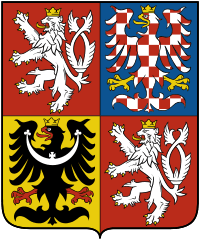Three years of positive parenting in the Czech Republic. What is the experience of parents and professionals with the Triple-P programme?

- ←
- →
Published
Three years of piloting, tutors across the country and dozens of group courses for parents. Use in families, hospitals and child care centers. These are the results of the Triple P project in the Czech Republic.
The program was developed in Australia and is already used in more than 37 countries around the world. It draws on scientific knowledge and research. The main idea behind Triple P is summed up by its author, clinical psychologist Professor Matt Sanders: "Parenting is the hardest job any parent has in life, and it is also the job we are least prepared for".
What is Positive Parenting?
The Triple P program teaches parents the skills needed to build healthy family relationships, manage inappropriate behavior in their children, and prevent parenting problems. Triple P does not promote a one-size-fits-all solution. It offers parents simple and practical strategies that they can adapt to their own values, beliefs and needs. (source: project web)
"As soon as I started applying the concrete recommendations, communication with my daughter improved tremendously," says course participant Pavlína Poubová, a product manager at a large international company, currently on parental leave. She enrolled in the course to improve her relationship with her child. She was looking for a course where she could be sure that the advice she was receiving was really correct, that the programme had been evaluated. Which the Triple P fulfilled.
World programme for the first time in the Czech Republic
By the spring of 2024, over 750 Czech parents will have completed the eight-week free course. Fifty lecturers have been trained. Over three years, 21 organisations have joined the programme. The Ministry of Health took over the patronage and management of the project.
The three-year pilot testing of the Triple P programme in the Czech Republic was made possible thanks to funding from the EEA Grants (Health Programme). The project is now coming to an end, but Jakub Dvořáček, Deputy Minister of Health, expressed his conviction at the final conference of the project at the end of last year that the programme will continue in our country in the future, funded from other sources.
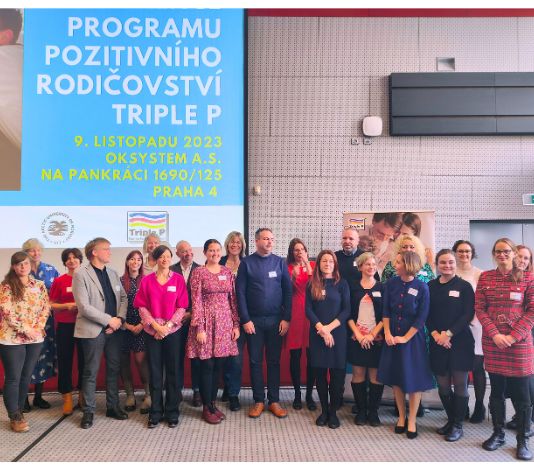
Final conference and evaluation of the three years of the project. Prague, November 2023.
Tested on 4 million children
More than 4 million children or their families have already been through the programme worldwide. A comparative study in Ireland, for example, shows that in a group of 1 500 families enrolled in the programme, there was a 37% reduction in the incidence of severe child problems compared to a control group. In the US, among the 85,000 families supported by Triple P, there were 21% fewer out-of-home placements, 13% fewer child maltreatment injuries, and 31% fewer court-documented child maltreatment cases compared to families who did not go through Triple P.
"The program fits all parents, in all situations. From light support for everyday life to access to children with psychiatric diagnoses," says Dominic Weston, a trainer who has coached trainers for the Positive Parenting Programme in the Czech Republic.
How is Triple P different?
P. Poubová, a participant in the course, sums it up well: 'I had studied all kinds of educational directions from the Internet. After the webinar, you have the feeling that you understand it, but in a stressful situation you don't quickly remember the sentence you are supposed to use. Triple P, on the other hand, teaches parents to be themselves and not to fall into a stressful situation in the first place."
The principle of self-regulation is used in the courses. For example, parents are shown videos and then evaluate why the children behave the way they do. Parents also learn to look at themselves.
The Triple P programme was also experimentally tested by the multidisciplinary mental health team of the Ostrava University Hospital. They also have positive experiences with it there. Of course, it works best with motivated parents who just need to fine-tune their parenting style.
"But there are also parents who have a child hospitalized in the Ostrava psychiatric clinic and are convinced that someone will fix their child there without them doing anything," says Monika Matulová, a special pedagogue from the multidisciplinary team at the Ostrava Hospital. In Ostrava, they have therefore taken the route where completing the Triple P parenting programme is a mandatory part of the package when a child is hospitalised. "Often, during the second or third session, even a parent who initially resisted understands that he or she has to work with himself or herself, otherwise change is not possible," explains a member of the Ostrava team and Triple P lecturer, adding that parents begin to observe themselves and perceive that how they behave towards the child has a feedback in how the child behaves towards them.
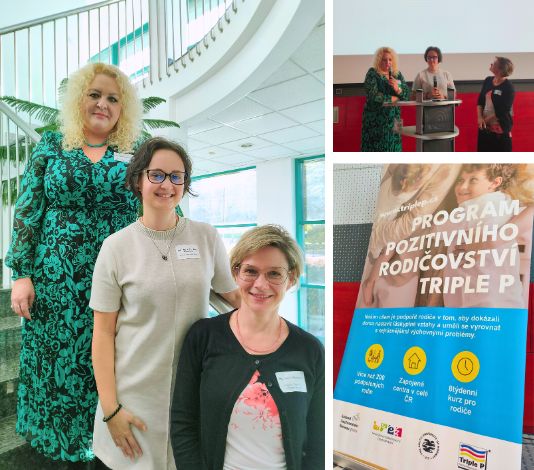
Multidisciplinary mental health team of the Ostrava University Hospital::
Mgr. Monika Matulová, DiS., Mgr. et Mgr. Alena Cholevová, Mgr. Lenka Škarková Stojanová
Wait five sedonds
In Triple P, participants are offered several strategies to deal with the child or to prevent the parent from having to deal with inappropriate behaviour in the first place. Parents can use only a few and expand their portfolio with others over time, or they can return to some of the strategies they have used in the past. A special section is also devoted to appreciation and praise. Parents are given very specific advice. "For example, I didn't know that I had to wait five seconds before the child stops what he is doing and is ready to react," smiles P. Poubová, a graduate of the course. She has observed that just by applying this simple rule, about half of the cases in which a conflict would have arisen before are eliminated.
There is another way
The programme is also used at the Dyjáda Centre for Educational Care in Most. Clients here often come from socially weak families, have a poor social status, challenging behaviour and have learned parenting styles from their parents. "They use exactly the same behaviour patterns they experienced as children. Often shouting and hitting. And within the programme they can find strategies that are appropriate, positive and do not destroy the child's personality," say special educators and ethopedists Barbora Langová and Vlaďka Sikýřová. "Thanks to Triple P, we have been able to end outpatient care for those clients who have gone through the programme and the difficulties have eased to the point where it is no longer necessary to come to the educational care centre," agree the two experts on problem behaviour in children from Most.
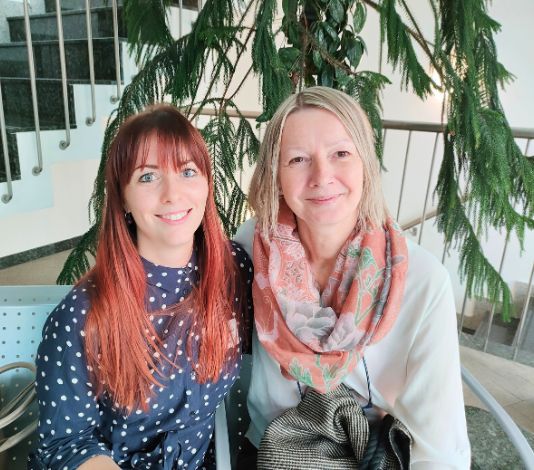
The Positive Parenting Programme is also used at the Dyjáda Educational Care Centre in Most. Mgr. Barbora Langová, Mgr. Vladimíra Sikýřová shared their experience
Teach parents to cook with available ingredients
Lenka Škarková Stojanová, a psychologist from Ostrava's multidisciplinary team, also sees the benefits of the program, and for her Triple P is a tool that allows her to move on the same level with the parents. When a parent comes in with a problem or mental illness in their child, they are usually able to understand where the problem is and what to change right after the initial conversation. "In the program, they figure things out on their own. It's not me telling them what they're doing wrong," says L. Škarková Stojanová, adding that parents also get feedback from other parents in the group. Parents also share together what has worked well for them. The therapist only directs their discussion or checks whether the parents have understood the strategies offered correctly.
As all the members of the multidisciplinary team at the Ostrava hospital agree, "We do not give parents a cookbook for their child, there is no universal one. They get the utensils and ingredients from us and combine what they like and what suits them. Our goal is to make parents competent - to teach them how to cook." They add: "But we still go back to the beginning - building a relationship. Because if there is no relationship with the child, no strategy will work."
P. Poubová, a graduate of the parenting course, confirms the same in other words: 'It is not only the partner relationship that needs to be worked on, but also the parent-child relationship. I initially tended to change my child instead of changing my inner settings".
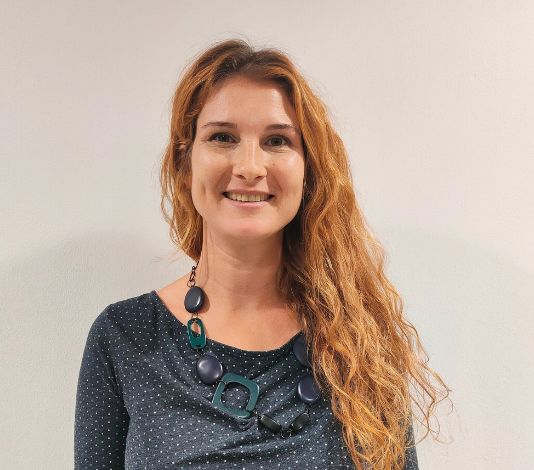
Petra Poubová, positive parenting programme graduate
More info at: triplep.cz
Text and photo: eeagrants.cz
